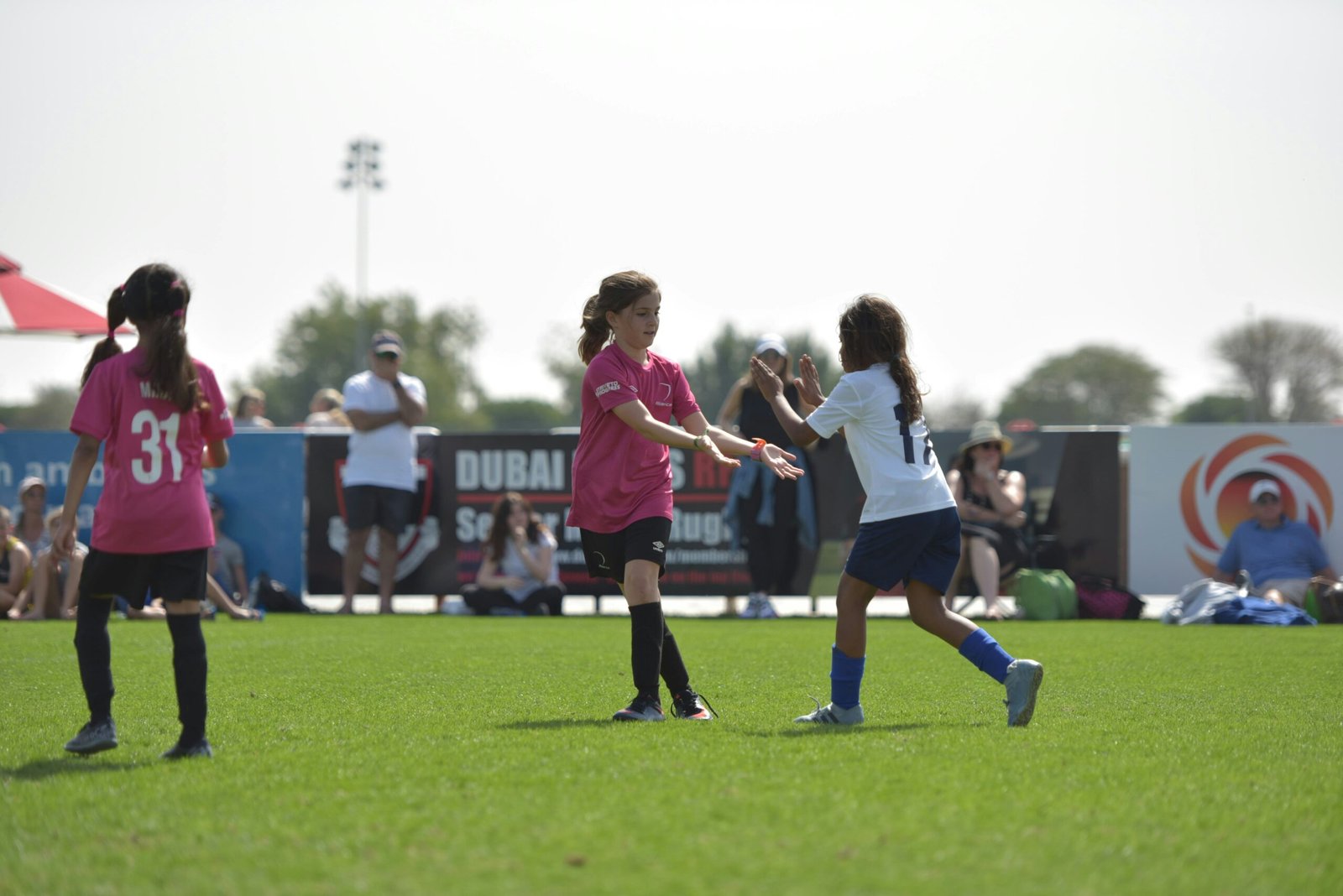From Stress to Success: Helping Youth Athletes Overcome Sports Anxiety
For many young athletes, the pressure to perform can lead to overwhelming feelings of anxiety. From fear of failure to the pressure of meeting expectations, it’s crucial for both athletes and their support systems to recognize that these feelings are normal and manageable. Sports anxiety can manifest in many ways, from physical symptoms like a stomach ache or a racing heart, to mental struggles such as fear of letting others down, self-doubt, and even avoidance behaviours. These anxieties are often triggered by the strong focus on performance and outcomes, which can lead to a sense of pressure that is difficult to handle.
Understanding that sports anxiety is a natural process of the athletic experience is important. In this post I hope to shine light on the effective strategies that can help young athletes manage and work through these feelings. By fostering a supportive environment, focusing on the process rather than the outcome, and incorporating mindfulness practices, athletes can reduce their anxiety and improve their overall performance. These strategies not only help to ease the mental and emotional stress of performance pressure, but also helps to empower athletes to approach their sport with greater confidence and enjoyment.
What Sports Anxiety Looks Like and How it Affects Performance
Sports anxiety is a psychological response to the pressures of competition, expectations, and performance outcomes. It often arises when athletes are overly focused on the outcome, such as, winning a game and meeting external expectations. This can lead them to experience heightened levels of stress, not to mention can cause a cycle of anxiety, where the fear of failure overwhelms their ability to enjoy the game or perform well. Common signs of sports anxiety include a racing heart, nausea, headaches, and frequent urination, as well as, irritability, self-doubt, and fear of letting others down. Athletes may also struggle with negative thoughts that hinder their focus causing them to fixate on mistakes and potential failures rather than enjoying the game or focusing on their development. Understanding these signs and shifting the focus from just performance outcomes to personal growth and skill development can help break the cycle and reduce anxiety.
- Creating a Supportive Environment
- Why It Matters: Youth athletes thrive when they feel safe and supported. Anxiety often stems from external pressure, whether it’s from parents, coaches, or teammates. A positive and understanding environment can help alleviate some of the stress athletes feel.
- Strategies for Action: Encourage open conversations about anxiety without judgment. Coaches and parents can foster a supportive environment that focuses on effort rather than just outcomes. Emphasize the importance of enjoying the game over winning at all costs.
- Role of Coaches and Parents: Leading by Example
- Why It Matters: Coaches and parents play a key role in shaping an athlete’s mindset. When adults display healthy attitudes toward stress, failure, and competition, it helps normalize anxiety and teaches athlete’s how to manage their emotions.
- Strategies for Action: Coaches and parents should praise effort and resilience, not just winning. They can model positive behaviours and reactions, like staying calm under pressure, problem-solving, and reflecting that it’s okay to feel emotions.
- Focus on the Process, Not Just the Outcome
- Why It Matters: Performance anxiety often arises from fear of failure of letting others down. By focusing on the process, such as improving skills, staying present, and personally growth, athletes are less likely to feel burdened by expectations.
- Strategies for Action: Help athletes set small, achievable goals (e.g., improving a specific skill) instead of focusing on perfect performance or winning. This shifts the focus from fear of failure to progress and improvement.
- Emphasizing Self-Compassion and Healthy Expectations
- Why It Matters: Youth athletes can be very hard on themselves, which only increases feelings of nervousness and anxiety. Encouraging athletes to develop self-compassion is key to reducing pressure and managing stress.
- Strategies for Action: Teach young athletes that mistakes are part of the learning process. Encourage them to treat themselves with the same kindness they would offer to a friend facing similar challenges. Help them understand that growth comes from learning from one’s mistakes, not from being perfect.
- Building Confidence through Preparation and Routine
- Why It Matters: Anxiety often stems from feeling unprepared or uncertain. Building confidence through preparation can make athletes feel more in control and reduce the fear of the unknown.
- Strategies for Action: Develop pre-game or pre-practice routines that help athletes feel grounded and focused. This could include things like visualization, stretching, or listening to music before competitions. When athletes feel prepared, their anxiety levels often decrease.
- Encouraging Mindfulness and Relaxation Techniques
-
- Why It Matters: Anxiety and nervousness can cause physical tension or distract athletes from staying present. Mindfulness helps athletes stay focused on the task at hand, making it easier to play their favourite sport without being overwhelmed by intrusive thoughts.
- Strategies for Action: Introduce simple mindfulness exercises that athletes can do before or during practices. For example, the 5 Senses scan can help athletes ground themselves and reduce anxiety. Ask them to pause and focus on:
- Sight: Look around and notice 5 things they can see
- Touch: Focus on four things they can feel (like the texture of their jersey or the ground beneath them)
- Sound: Listen for three things they can hear (the sound of a ball bouncing, voices, or their heart beating through their ears)
- Smell: Identify two things they can smell (the freshly cut grass, the coffee of someone on the sidelines)
- Taste: Notice one thing they can taste (the snack they had earlier)
Overcoming Anxiety One Step at a Time
Overcoming Anxiety is a process that takes time, and it is crucial to remind youth athletes that experiencing anxiety is completely natural, especially in competitive environments. It is a large part of being human, and while it may feel overwhelming at times, it doesn’t have to be something they struggle with alone. With consistent effort, support from coaches, parents, and peers, anxiety can be manageable. By focusing on the process, embracing mistakes as learning opportunities, and practicing mindfulness techniques, athletes can build a healthier relationship with their anxiety. Over time, with patience and the right support, they will be better equipped to perform at their best and, most importantly, enjoy the sport they love.
How to Make a Difference
- For Coaches and Parents: Encourage the adults involved to actively support these strategies, whether through open communication, fostering a healthy environment, or modeling positive behaviors.
- For Athletes: Encourage athletes to start implementing just one or two of these strategies in their next practice or game and build from there.




